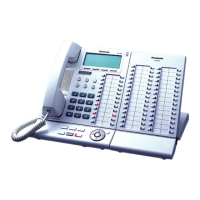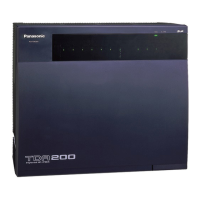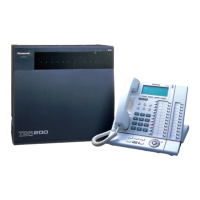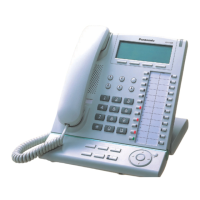1.25 Networking Features
Feature Guide 189
2. Making and Receiving TIE Line Calls
To make a call to an extension of another PBX, an extension user dials the TIE Line Access number,
PBX code, and an extension number.
[Example]
[Programming Example: TIE Line Routing and Modification Table for PBX-1]
Explanation:
PBX-1 makes a call.
Extension 1001 of PBX-1 dials the TIE Line Access number "7", the PBX code "903", and an extension
number "1001".
1. The TIE Line Access number was dialed, therefore PBX-1 checks its TIE Line Routing and
Modification Table. Finds leading number "903". 1st priority CO line group is "2".
2. No lines are available in this CO line group. The PBX checks for an available line in the 2nd priority
CO line group (CO line group 1), and finds an available line. No modification is programmed.
3. PBX-1 removes the TIE Line Access number and sends the remaining digits down the TIE line via
CO line group 1. The number is now "903-1001".
PBX-2 receives the call.
1. PBX-2 checks its Incoming Number Modification Table (not shown here). No modification is
programmed. The number is still "903-1001".
2. PBX-2 checks its TIE Line Routing and Modification Table (not shown here). Finds leading number
"903". 1st priority CO line group is "8". No modification is programmed.
3. Sends the call down the TIE line via CO line group 8. The number is still "903-1001".
PBX Codes
PBX-1: 901
PBX-2: 902
PBX-3: 903
Calls for PBX-3
Calls for PBX-2
Extn. 1001
Extn. 1001
Extn. 1001
Dials "7-903-1001"
7:
903:
1001:
TIE Line Access no.
PBX code
Extn. no
CO Line Grp. 1
CO Line Grp. 8
CO Line Grp. 2
PBX-2PBX-1
PBX-3
Calls for
PBX-3
Routing Priority
1st priority
2nd priority
Calls for PBX-2
Calls for PBX-3
Leading
No.
902
903
CO
Line
Group
1
2
CO
Line
Group
2
1
Removed
No. of
Digits
0
0
Added
No.
Dial Modification
Priority 1 Priority 2
Removed
No. of
Digits
0
0
Added
No.
Dial Modification
Location
No.
01
02

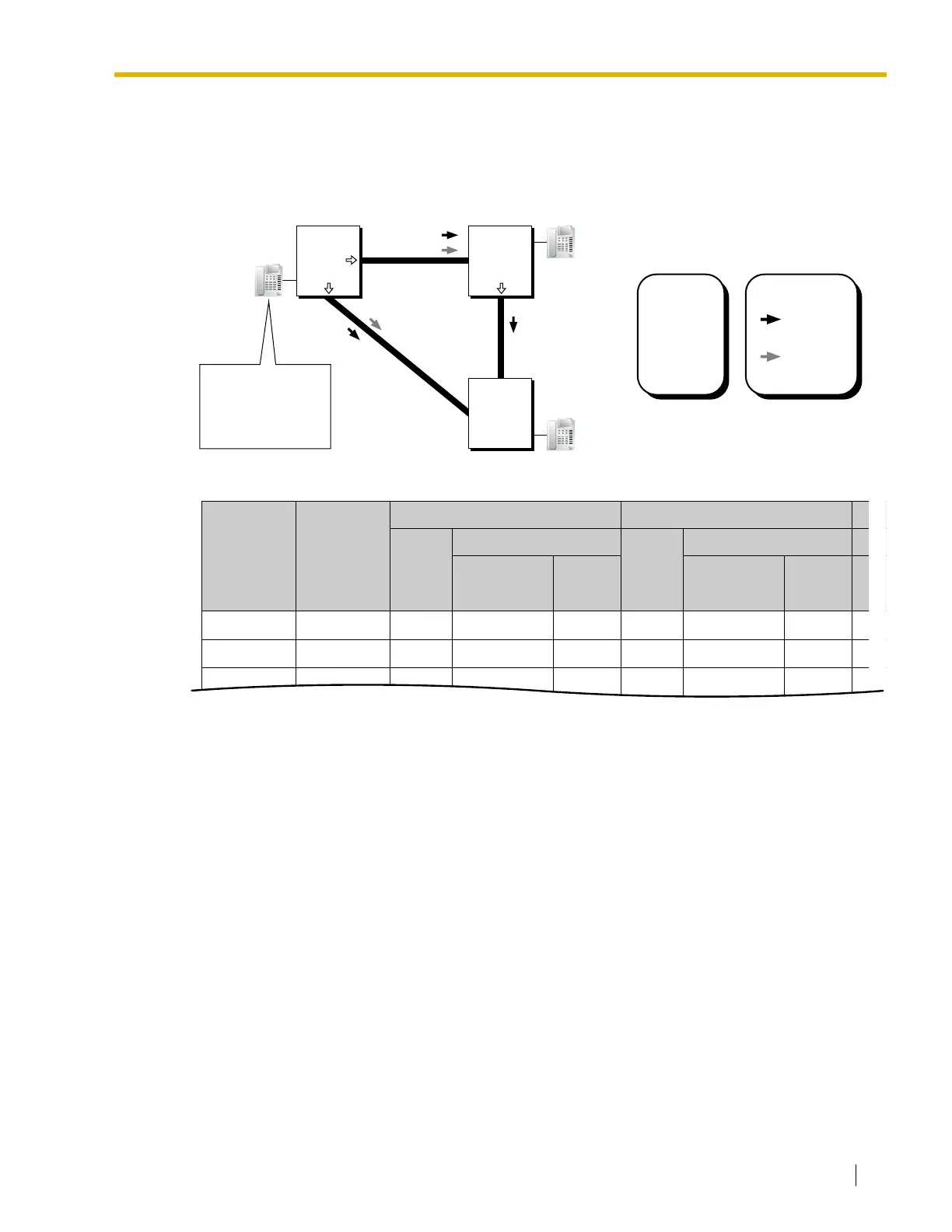